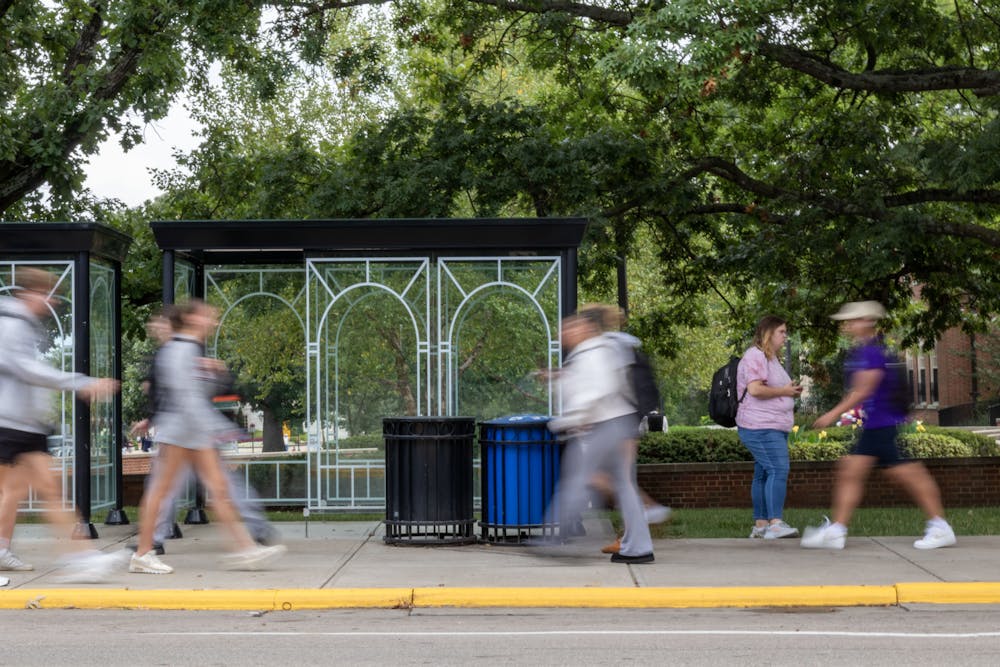As sustainability initiatives established by international, national and state regulations move forward, accessibility for many disabled individuals moves back. Amid conflict regarding environmental awareness and pollution levels is a largely unpublicized issue: eco-ableism.
Eco-ableism, while often unintentionally caused, is the direct result of non-disabled environmental activists failing to recognize and protect the needs of their disabled peers.
In addition to being significantly more impacted by the transition to “greener” alternatives, disabled individuals are also two to four times more likely to lose their lives due to events fueled by the climate crisis. These include extreme heat, fires, droughts or floods, according to Michael Ashley Stein, co-founder and Executive Director of the Harvard Law School Project on Disability.
Moreover, people with heart diseases experience disproportionate risk to their lives due to extreme heat than those without at any given time.
The problems with reusable alternatives
One of the most well-known waste reduction solutions is the removal of plastic straws from restaurants in favor of alternatives such as paper. Although this shift to paper straws can limit non-compostable waste, many disabled individuals find difficulty navigating this change.
In reality, plastic straws account for less than one percent of all ocean pollution, so the necessity of this change has been questioned. Paper straws, meanwhile, are inaccessible to many disabled individuals because they can’t be bent into or maintain a shape, and the straws may dissolve during use. As a result, people with sensory sensitivities or who are unable to lift or maneuver a cup — and people who require other accommodations — may have trouble drinking their beverage.
“The risk is that banning straws may confer moral license – allowing companies and their customers to feel they have done their part,” said Jim Leape, the co-director of Stanford Center for Ocean Solutions, in an interview with the Stanford Report.
Reusable straw alternatives must be washed after each use, which isn’t always possible for those with differences in dexterity or chronic illness. Additionally, the common materials of reusable straws may pose an impalement risk and can be either too flimsy or too rigid.
Green transportation impacts individuals with limited mobility
According to the City of Cincinnati’s Green Cincinnati plan, cities in Ohio like Cleveland and Cincinnati are discussing and implementing parking reform to make areas more walkable. Although this reform is nuanced, as accessibility needs differ for every individual, the lack of disabled voices compared to non-disabled speakers limits an already underrepresented group’s voice.
For disabled individuals who live outside metropolitan cities and require a car or cannot walk long distances, the removal of these accessible spaces can be harmful. Public transit isn't always an option, even when the bus itself is accessible. A lack of curb cuts, proper signage or seating at the stop location all present significant barriers. The lack of accessibility may go unnoticed by non-disabled individuals, such as with BCRTA Bus Station D outside of Armstrong Student Center at Miami University. However, these assistive tools may be critical for some disabled individuals despite not being legally required by the ADA.
Enjoy what you're reading?
Signup for our newsletter
Moreover, during the first day of the United Nations Climate Summit in Glasgow (COP26) in 2021, Israeli energy minister, Karine Elharar, was unable to attend due to wheelchair inaccessibility. While the access issue was later reconciled, this is by no means a stand-alone instance.
Reconciling environmentalism and anti-ableism
While making a meaningful contribution to the sustainability movement may seem daunting, anyone focusing on lowering carbon emissions and waste when possible can aid in change.
Approximately half of the global energy-related CO2 was produced by the top 10% of emitters in 2021. By holding large corporations accountable, opting to support local companies and practicing ethical consumerism, the most substantial change can be made.
By encouraging inclusive practices and uplifting disabled voices in every aspect of society, especially in policymaking, a more accessible and sustainable world can be built.
Students at Miami can make an impact by supporting local sustainable initiatives and organizations like the Moon Co-Op or Armstrong Student Center composting bins, or by getting involved in environmentally focused organizations on campus, students can make a significant change.
Both environmentalism and disability inclusion are nuanced topics, but viewing these issues holistically and avoiding criticism about the contribution of others can promote the most substantial change.
Sarah Frosch is a disabled, out-of-state second-year student majoring in Studio Art with an Art Therapy co-major. She is from the northwest suburbs of Chicago and works as a regular photographer for multiple student publications.




